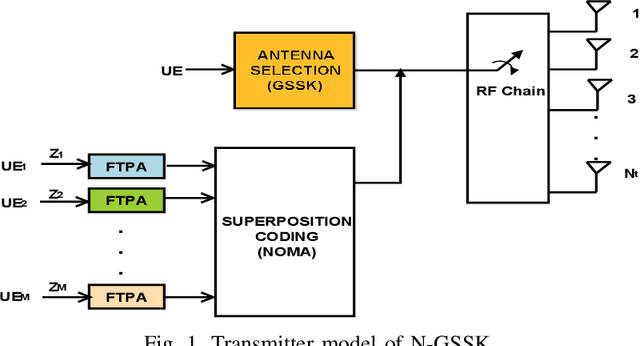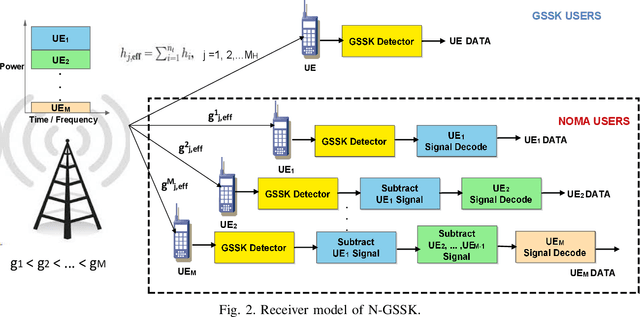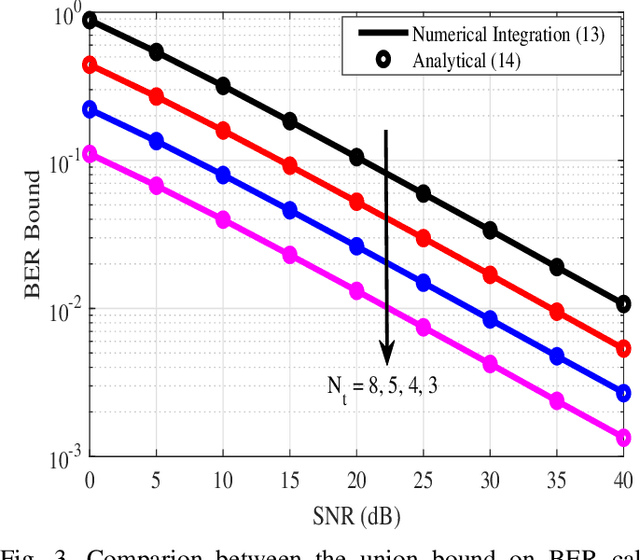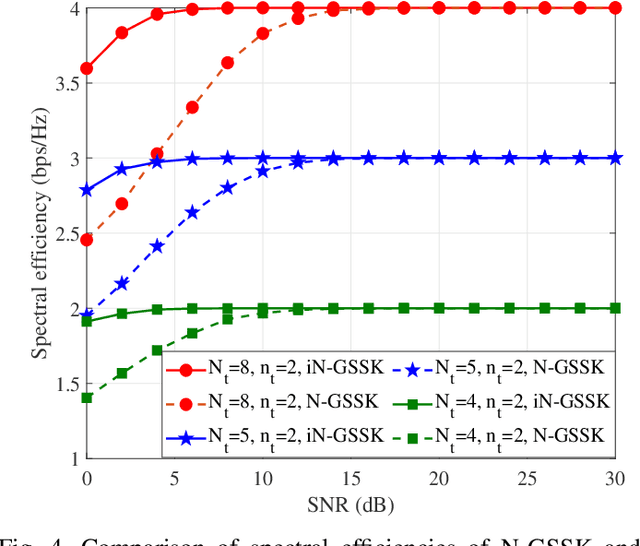Rajaleksmi Kishore
Interplay Between NOMA and GSSK: Detection Strategies and Performance Analysis
May 24, 2021



Abstract:Non-orthogonal multiple access (NOMA) is a technology enabler for the fifth generation and beyond networks, which has shown a great flexibility such that it can be readily integrated with other wireless technologies. In this paper, we investigate the interplay between NOMA and generalized space shift keying (GSSK) in a hybrid NOMA-GSSK (N-GSSK) network. Specifically, we provide a comprehensive analytical framework and propose a novel suboptimal energy-based maximum likelihood (ML) detector for the N-GSSK scheme. The proposed ML decoder exploits the energy of the received signals in order to estimate the active antenna indices. Its performance is investigated in terms of pairwise error probability, bit error rate union bound, and achievable rate. Finally, we establish the validity of our analysis through Monte-Carlo simulations and demonstrate that N-GSSK outperforms conventional NOMA and GSSK, particularly in terms of spectral efficiency.
 Add to Chrome
Add to Chrome Add to Firefox
Add to Firefox Add to Edge
Add to Edge